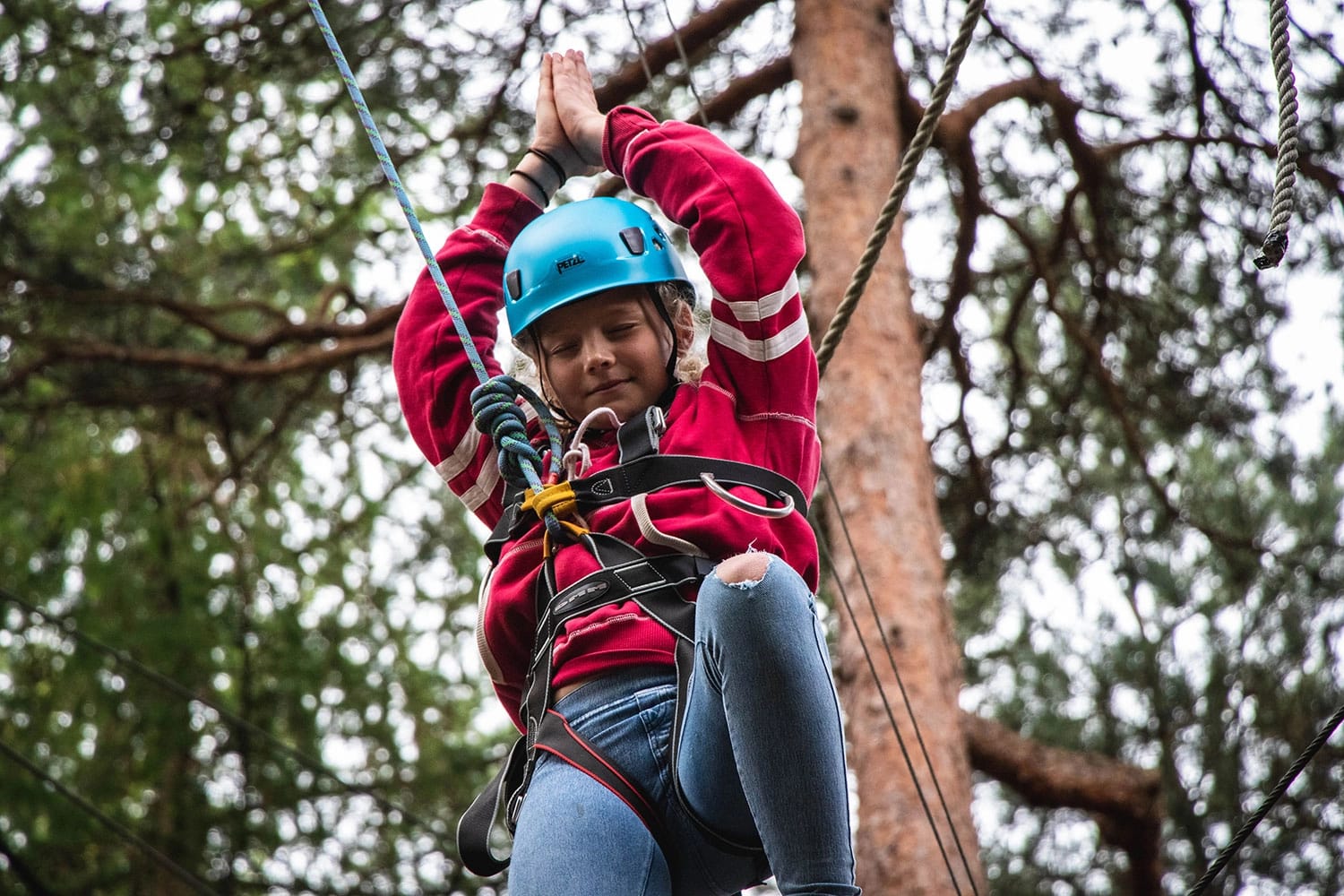5 Things to Love about Outdoor Learning: Don’t just take our word for it, studies show it too!
04 November 2019

So what is outdoor learning? The Institute for Outdoor Learning defines it as “discovery, experimentation, learning about and connecting to the natural world and engaging in adventure activities and outdoor sports”, 2019.
That’s great but what does it actually mean and how can you achieve it with your students?
Outdoor learning embraces an approach which focuses on primarily being outdoors; in any environment, with what will frequently be challenging, adventurous elements. It’s about physical dynamics and being respectful of the environment. It’s creating fun and memorable experiences.
It can look like anything from using the school pond and garden for biology, taking angles and shapes onto the sports courts (as recommended by Juliet Robertson in her book, Messy Maths: A playful outdoor approach for early years), map reading around the school grounds to learning in the wider outdoors within forest schools and outdoor education centres. Pausing to smell fresh blossom, feeling the force of water against a paddle, finding out why a river is the shape it is, supporting a team to climb to the top of a rope challenge; the possibilities are endless!
Here are 5 things to love about outdoor learning…
Love to develop?
Learning outside the classroom has been seen to improve young people’s development in all of 5 of Oftsed’s ‘Every Child Matters’ outcomes, even for those underachieving. Opportunities for differentiation and progression create engagement at a personal level and with a progression to suit, it also has the added benefit of increased health and wellbeing. Ofsted is clear that by being frequent, continuous and progressive building on knowledge and skills gained, outdoor learning becomes more effective.
Love to do stuff?
Through non-traditional sporting opportunities; hiking, cycling, paddling or engaging in environmental activities such as bird watching, river and coastal studies, routes to a life-time of outdoor engagement are forged, particularly when satisfying those with dynamic models of learning. Particularly as identified by Howard Gardners Multiple Intelligences, 1983

Love to be together?
Whether competing to reach the highest point first or working together to paddle a canoe through the creek, students learn they can achieve more working together rather than in isolation or opposition. Or if it’s a personal challenge e.g. the weather or a fear of water where it’s a ‘competition’ with oneself, young people can be motivated to achieve when other situations or ‘head-to-head’ pressure can lead to difficulty in expressing themselves. Memories are made, shared retold and re-lived.
Love to learn?
Not only do young people acquire and develop a range of psychomotor skills in pursuing their outdoor adventures, but exposure to well-managed risks also helps children learn important life skills, including how to manage risk themselves. Alongside ‘soft skills’ such as character development and resilience, hard results can be found with improved attainment and achievement in reading, writing and maths, improving SATs and GCSE results.
“Numerous surveys and research findings point to the fact that employers place a high premium on ‘employability skills’ over and above raw attainment. The CBI cites a broad range of character capabilities as key to employability, including self-reliance, teamwork and resilience”.
Love our environment?
By creating an affinity, understanding and ethic of care towards any environment, outdoor learning can make a clear and significant contribution to fostering positive, sustainable behaviours and attitudes in young people. At a time where climate crisis, human impact and social responsibility is on every headline, this is truly relevant.
By creating an affinity, understanding and ethic of care towards any environment, outdoor learning can make a clear and significant contribution to fostering positive, sustainable behaviours and attitudes in young people.
So, what do students think of outdoor learning?
“Trips help us learn more stuff than we can in a classroom” – Primary Pupil
“We like learning by doing”, “We learn in a fun way”, “You see rather than listen”.
“I have learnt so much here. It has built up my confidence and I have learned to try my best and have a go”.
Take a look through our gallery to see what outdoor learning can bring to students!
How do I make it happen?
We understand, in a time-pressured, often under-resourced environment, creating a vision for outdoor learning is a challenge.
First small steps:
- Foster an awareness of the overarching importance of outdoor learning using some of the studies and research links in this blog post
- Be creative with time, staff and resources. It’s easy to revert to our lesson plans we know and have established. Take small steps and make small changes initially
- Listen to young people. Use their desire and drive to encourage change
- Monitor the impact of outdoor learning to add measurable value to encourage repeat provision
- Work with experienced partners to provide opportunities. They will have the resources, processes and facilities to support you, and will work to make the arrangements less onerous
We’ll look forward to welcoming you to the great outdoors soon!
If you’re ready to take those first small steps, and want to speak to one of our experts about outdoor learning, get in touch!
